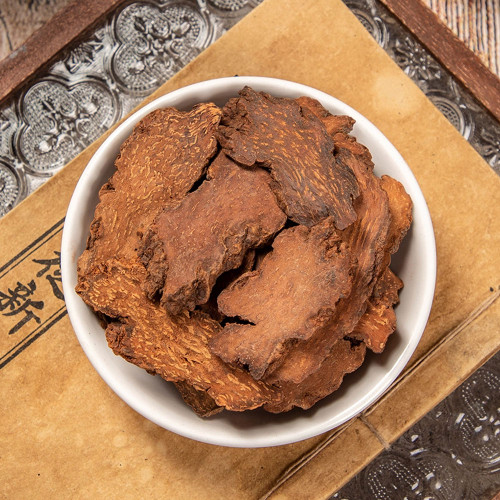Product Overview
Cynomorium, known in Chinese as Suo Yang, is prepared from the dried stem of Cynomorium songaricum, a perennial parasitic herb commonly found in the arid desert regions of Northwest China, Inner Mongolia, and Xinjiang. The plant typically parasitizes the roots of shrubs such as Nitraria species. After harvesting, the stem is sliced and dried for preservation. The slices are brown to dark brown, hard or slightly brittle in texture, with a smooth fracture surface, fine longitudinal striations on the outer surface, a faint fragrance, and a slightly sweet taste.
In traditional Chinese medicine (TCM), Cynomorium is classified as sweet in flavor and warm in nature, entering the liver, kidney, and large intestine meridians. It is valued for its gentle yet effective tonic properties, particularly in treating conditions related to kidney yang deficiency and blood-essence depletion. Its primary functions include tonifying kidney yang, nourishing essence and blood, strengthening muscles and bones, and moistening the intestines to relieve constipation.
Tonifying kidney yang is considered its core function. In TCM theory, the kidneys store essence and govern reproduction and growth. Deficiency in kidney yang may lead to symptoms such as reduced libido, impotence, cold extremities, and chronic fatigue. Cynomorium warms and invigorates kidney yang, improving conditions like impotence, premature ejaculation, infertility due to cold semen, and lumbar weakness. Its action is mild compared to stronger yang tonics like deer antlers, making it suitable for long-term use.
Another important effect is nourishing the essence and blood to support fertility. Cynomorium contains steroidal saponins and organic acids that can enhance androgen levels, stimulate gonadal activity, and improve sperm count and motility. For women, it helps warm the uterus, tonify essence and blood, and may assist in cases of infertility caused by deficiency and cold in the reproductive system.
It also strengthens muscles and bones by replenishing the liver and kidneys, which are essential for maintaining tendon and bone health. Cynomorium is useful for symptoms such as weak limbs, chronic back and leg pain, and reduced mobility. It is often recommended for age-related osteoporosis, rheumatic conditions, and post-illness recovery when muscle weakness is present.
Additionally, Cynomorium has a moistening and lubricating effect on the intestines, making it suitable for constipation due to dryness, especially in the elderly or those with chronic weakness. Compared with Cistanche (Rou Cong Rong), its laxative effect is milder but more balanced, making it ideal for individuals with cold intolerance and weakness accompanied by dry stools.
Modern pharmacological studies have shown that Cynomorium possesses antioxidant properties, helps delay aging, improves immune function, relieves fatigue, and supports healthy blood circulation. These findings align with TCM concepts of replenishing essence and blood and strengthening vital energy, providing a scientific basis for its traditional uses.
How to use:
Suggested Dosage
Take 0.5–1 gram each time, 1–2 times daily. Start with a lower dose for the first few days and adjust as needed.
Warm Water: Mix the powder with 40–60°C warm water and drink directly.
With Food: Add to porridge, soup, or honey water for a better taste.
Avoid Prolonged High Heat: To preserve active components.
Timing
Best taken with or after meals for better absorption.
Recommended as a 4–6 week course, with a 1–2 week break between courses.
Precautions
Avoid taking strong tea or coffee as they may reduce absorption.
Not recommended for individuals with fever, excess internal heat, acute inflammation, pregnant or breastfeeding women.
People with chronic diseases or taking other medications should consult a healthcare professional before use.









